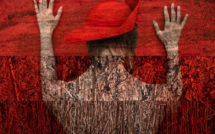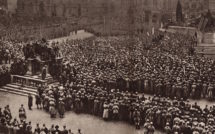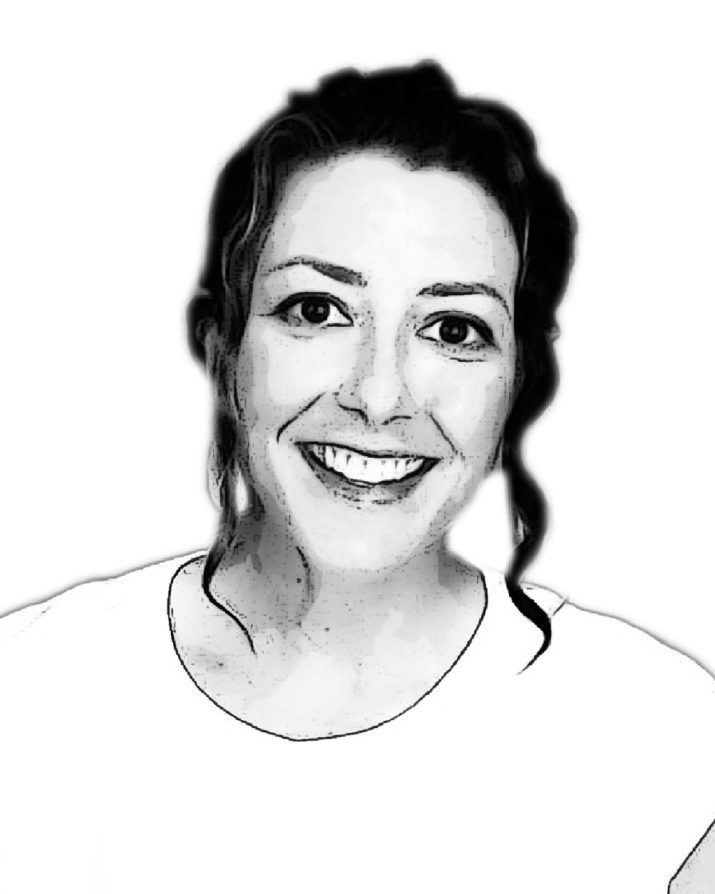
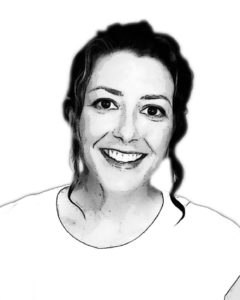
“Ignorance and apathy have no boundaries,” David said. I raised the half-empty bottle of Evan Williams. He nodded at it but refused my boyfriend’s invitation to stay for dinner, saying he would “leave with this one last thing so y’all can eat.” That morning I’d left him a voicemail at the recommendation of a Civil War expert who’d described David as a rogue historian. I thought there might be a possible slave cemetery on the hill across the road, and I needed someone with deep knowledge of the city’s battles to vet my research. When David returned my call, he didn’t introduce himself. Instead he said, “What this is like is you showing up in prison where I’ve been for fifteen years with cigarettes and girly magazines.” By day’s end, he was sipping bourbon at my dinner table and ruminating on who we are as Americans and what our culture represents—all this as the sun dropped below the hill’s tree line out my kitchen window.
“Southerners see themselves as the last hope of the nation because they’re the only ones who still have meat on their bones—everywhere else has been bleached to the bone.” As a Northerner reared by Northerners, I thought David might be suggesting Southerners are the only honest Americans left, or at least the most authentic version of American honesty. I remained silent on the issue. He held forth for another two hours on such subjects as the Battle of Atlanta, Confederate tombstones, and Catherine the Great’s alleged preference for equine phalluses, while I ate my chicken dinner sloppily before him.
“It’s the responsibility of the living to represent the dead,” David said. Tall with long arms and an artist’s hands, he waves wildly when he speaks, and when he doesn’t—his limbs extensions of a zealous mind reaching to pull you in. He self-describes as an “unorthodox preservationist” and chafes at being lumped in with historians. “I think Thomas Jefferson said, ‘Who controls the past controls the future; who controls the present controls the past.’” I later corrected him about the attribution, and he thanked me—the concept was Orwell’s. That night he continued, “How we treat our dead is a real representation of our current culture.” My kitchen table was draped in dirty linen and unpaid bills. David picked up the three-hundred-dollar municipal fine I’d received for driving past a school bus’s flashing STOP sign. “Now I like you even more,” he said. Smiling, he showed me a picture of his nine-year-old and asked, “Do you like Decatur?” Decatur is the city that issued my traffic violation. Then he said, “Because good schools don’t make good people.”
David turned the cup in his hand and studied it, noting, “These are the good ones.” We were drinking Kentucky bourbon from tall plastic tumblers imprinted with yellow daffodils that flaked off in the warmth of our hands. The tumblers are matronly—old, bottom-weighted, and solid. My grandmother would drink her five-o’clock Canadian Club from a tumbler just like these but with blue-purple irises on its side, sipping as she assembled a casserole in a dish the same color as her whisky. Years ago, I found my set on a Brooklyn brownstone’s stoop. A child’s loose scrawl labeled the cardboard box F-R-E-E. I adore these cups, in large part for the way they make me think about things I have no other reason to remember—like the daffodils I planted as a child by the mailbox and later cut fresh and swathed in wet paper towels for my elementary school teacher. I think David may have admired the tumblers for the same reason—for the nostalgia carved out in the weight of an indestructible, American-made plastic cup.
He continued to free associate among topics, somehow all pertaining to cultural preservation, moving rapid-fire in the way brilliant minds can transcend restraints that bind the rest of us. He said, “Historical preservation does not have a Sierra Club.” When David emphasizes words, heavier Appalachian cadences inflect his North Georgia accent. “The neighborhood organization here is a contingency of first-world problems.” His voice reverberated as a marriage of his Southern intelligentsia roots and northern education. He said, “For me, preservation is the umbrella into which history fits, the thing that creates the conversation we’re having here tonight.” Later, he wound his way around to the subject of his own people in Alabama and Rome, Georgia, his voice booming. “Daddy,” he declared, “was a Faulkner novel.”
And then I remembered a five-day Nor’easter, a time when I was housebound and the smell of decaying meat became so putrid I opened my windows and read Faulkner and drank wine from a daffodil cup, waiting days for the NYPD to arrive and confirm a dead body had decomposed in the apartment beneath mine. In this moment, with David in my kitchen, booze and Faulkner on our breath, I felt inexplicably closer to a stranger than I think I ever will again.
I returned to the occasion for our meeting. On the hill framed by my window, a developer prepared to clear the dense urban forest where longtime residents, as they’d told me, remembered graveyard markers. I asked David how one could get the local government to intervene. I knew he believed I was one of the other Americans, the ones bleached and stripped to the bone, but he later told me I’d shown my belly to him that evening, an animal revealing its soft spot, and for that he seemed to think I was redeemable. Again I asked how to cut through the bureaucracy, and even as he agreed I might be on to something, he warned, “Don’t be a Yankee Messiah.”
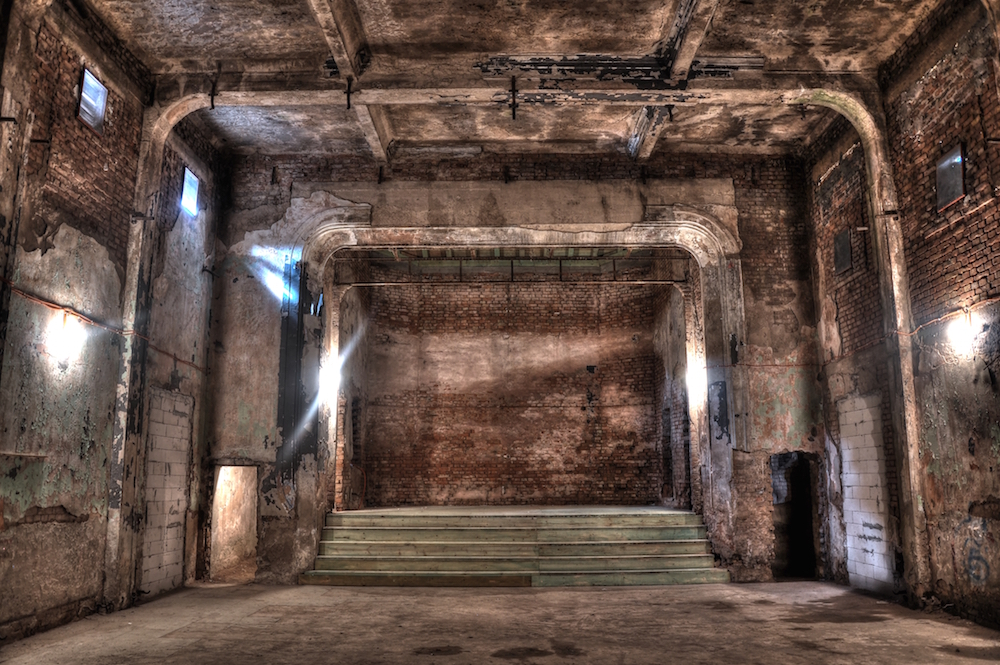
Photographic response by Kenan Muslić.
Suzanne Mozes is a writer and editor at work on a biography of Dante Gabriel Rossetti (W.W. Norton).
Kenan Muslić is an architecture student from Sarajevo. He is currently working as a photographer for the “Days of Architecture” festival in Sarajevo and the Association of Architects of Bosnia and Herzegovina. He specializes, too, in landscape photography and is a mountain guide and alpine climber. He has exhibited his work in Sarajevo in group exhibitions and one solo show.
Published on December 6, 2017.
Click here to read more on The Borders Project.

